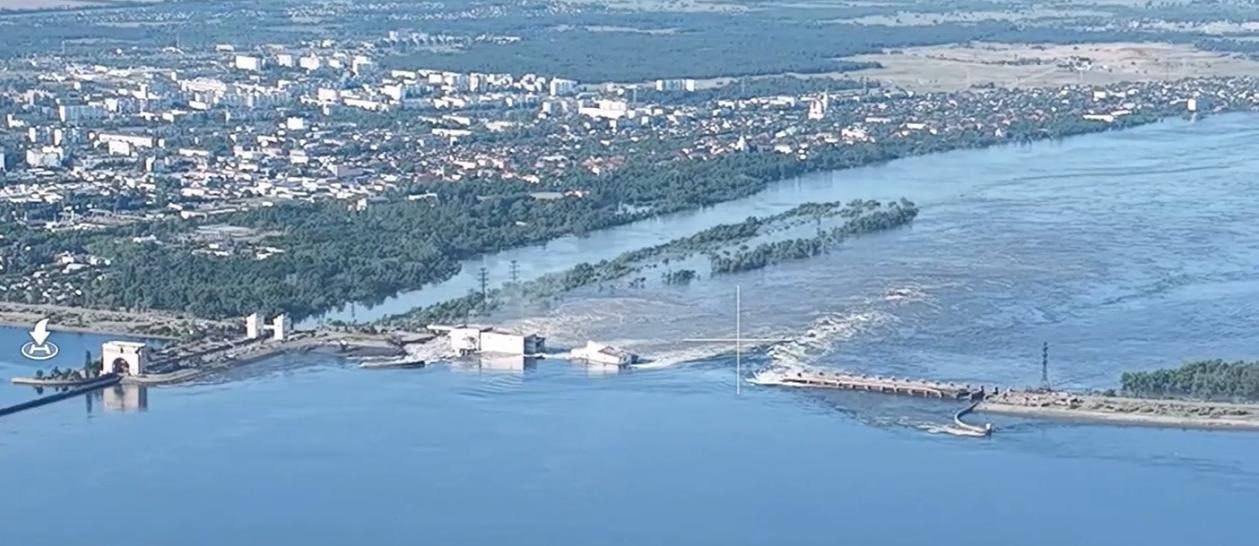World leaders condemn Russia's destruction of Kakhovka dam, call it war crime

World leaders and international organizations are reacting to the growing humanitarian and environmental disaster caused by Russia blowing up the Kakhovka Hydroelectric Power Plant, with many calling it a war crime.
"The destruction of civilian infrastructure clearly qualifies as a war crime - and we will hold Russia and its proxies accountable," European Council President Charles Michel wrote.
NATO Secretary-General Jens Stoltenberg called it "an outrageous act which demonstrates once again the brutality of Russia's war in Ukraine."
Estonia's Foreign Minister Margus Tsahkna wrote that the destruction of the dam "will result in ecocide, enormous economic damage, and displacement of thousands of people," adding that Russia needed to face a special tribunal for its war crimes.
Moldova's President Maia Sandu said that her country was "ready to provide assistance in response to the floods and support efforts to mitigate the impact."
"Terrorists don't stop unless they are stopped. They don't negotiate with anything except force. They cause huge catastrophes without regret. I'll say it again: Lasting peace in Europe requires a Ukrainian victory both on the battlefield and in court. Nothing else will work," Lithuania's Foreign Minister Gabrielius Landsbergis added.
The UN Office for the Coordination of Humanitarian Affairs reiterated that civilian infrastructure should not be a target during wartime.
"The destruction of the Kakhovka Dam puts thousands of civilians in danger, leaving many with no homes and in dire humanitarian need," the UN wrote.
Russian forces destroyed the Kakhova Hydroelectric Power Plant’s dam across the Dnipro River on the morning of June 6, sparking a large-scale humanitarian and environmental disaster across southern Ukraine.
Built in 1956, the power plant is a crucial component of Ukraine’s energy infrastructure. According to Ukraine’s state hydroelectric power company, the damage caused by the breach is “impossible to repair.”
Around 16,000 people’s homes in Kherson Oblast are reportedly located in “critical risk” zones for flooding. Eight hundred and eighty-five people have been evacuated from Kherson Oblast as of 11:00 a.m. local time, according to the Interior Ministry.
Ukraine is calling for an emergency meeting of the United Nations Security Council to be convened, according to the Foreign Ministry, along with "raising the issue of the Russian terrorist act at the meeting of the Board of Governors of the International Atomic Energy Agency (IAEA), as well as engaging the Civil Protection Mechanism of the European Union."
"The sabotage of the Kakhovka dam is an act of technogenic and ecological terrorism, the largest technogenic disaster in Europe in recent decades, and another manifestation of Russia's genocide against Ukrainians. It is a response by the Kremlin to countries calling for peaceful negotiations with Russia," the Foreign Ministry wrote.











